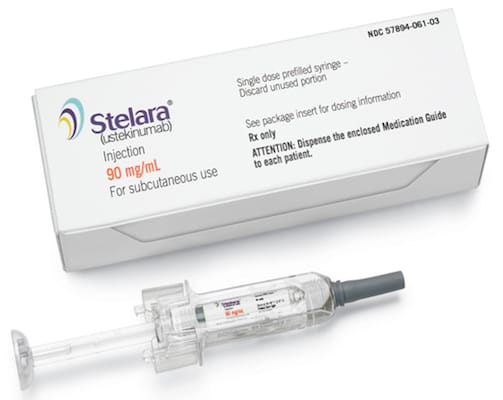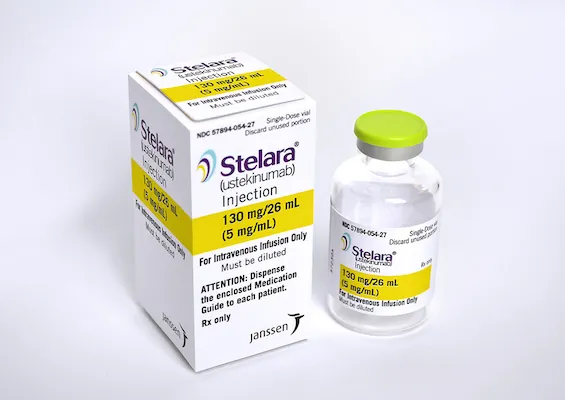HORSHAM, Pa. — Janssen Biotech Inc. has received Food and Drug Administration clearance for Stelara in treating Crohn’s disease in adults.
Janssen said Monday that Stelara (ustekinumab), which is also used in the treatement of psoriasis and psoriatic arthritis, represents the first biologic therapy for Crohn’s disease targeting interleukin (IL)-12 and IL-23 cytokines, which play a key role in inflammatory and immune responses.

Stelara therapy for Crohn’s disease begins with a health professional-supervised IV administration, followed by maintenance doses that can be injected by the patient.
Specifically, Stelara is indicated for moderately to severely active Crohn’s disease in people age 18 or older who have failed or were intolerant to treatment with immunomodulators or corticosteroids, but never failed treatment with a tumor necrosis factor (TNF) blocker, or who failed or were intolerant to treatment with one or more TNF blockers.
Crohn’s disease treatment with Stelara starts with a weight-based, one-time intravenous infusion dose to help reduce symptoms, followed by subcutaneous maintenance injections every eight weeks to help keep the symptoms under control, according to Janssen. The company said the first dose is administered intravenously under the supervision of a health care professional, and subsequent maintenance doses involve subcutaneous injections every eight weeks, by a health professional or self-injected by the patient after proper training.
“The approval of Stelara for Crohn’s disease underscores our commitment to provide innovative treatment options for people living with chronic inflammatory and immune-mediated diseases,” stated Andrew Greenspan, vice president of medical affairs at Janssen Biotech Inc. “We are confident Stelara will improve the lives of many people living with Crohn’s disease and are committed to ensuring that it is accessible to patients who qualify for this new therapeutic option.”
A chronic inflammatory condition of the gastrointestinal tract, Crohn’s disease affects about 700,000 Americans. Symptoms of Crohn’s disease can vary but often include abdominal pain and tenderness, frequent diarrhea, rectal bleeding, weight loss and fever. Hospitalization is needed at times to treat certain complications and for surgery due to this disease, which currently has no cure.
“The FDA approval of Stelara represents an important advancement in treating patients with Crohn’s disease, as this therapy offers an alternate mechanism of action to induce and maintain clinical remission over time,” commented Stelara study investigator William Sandborn, M.D., chief of the division of gastroenterology and professor of medicine at the UC San Diego School of Medicine. “Based on the results of the clinical development program, Stelara has the potential to benefit many adults living with Crohn’s disease.”








